AKHMATOVA, ANNA GORENKO. 1889-1966. Autograph manuscript signed, being the poem Naslednitsa [The Heiress], 1 p, 8vo (188 x 150 mm), on a folded sheet, in ink, signed and dated: "A. Akhmatova. 20 November 1959. [Leningrad], Kr. Konnitsy," partially spit along fold. Provenance: the family of Aleksei Vladimirovich Batalov (1928-2017, a dear friend of the poet). "Here is not only beauty but also the full awareness of her place in history" (Chukovskaya). AUTOGRAPH MANUSCRIPT OF ONE OF HER KEY POEMS. Akhmatova is now considered by many to be the greatest Russian poet of the 20th Century; and "Naslednitsa" as one of her key works. She led quite an extraordinary private life. Considered a great beauty in her day, she was portrayed by many prominent artists; and her ardent admirers included fellow poets Osip Mandelshtam, Boris Pasternak and Aleksandr Blok as well as painter Modigliani. She was shortlisted to receive the Nobel Prize, but that would have been impossible for she had been denounced in Pravda as an enemy of the people. She first came to prominence as a poet during the Silver Age, but unlike many of her contemporaries, she remained in the Soviet Union to suffer interminable hardship and heartache. Her husband, the poet Nikolai Gumilev, was executed by the Bolsheviks; her son was sent to The Gulag; her lover N. Punin died in a labor camp; and she became a nonperson when her work was condemned by the Communist Party. And still she persisted. "Naslednitsa" is set in Tsarskoe Seloe, the site of the Tsar's Catherine or Summer Palace and where Akhmatova grew up in luxury. The title refers to the poet being not only literally a Russian heiress in her youth but also implies that she has become the heir to the great Russian poet Pushkin, who walked among the same "lindens of wondrous beauty" at Tsarkoe Selo, now part of the town of Pushkin. Looking back on her troubled life, she wonders with some irony, "Oh, who would have told me then / That I would inherit all this." With it comes "even my own shadow, / All distorted by fear / And the penitential shirt, / And the gravestone lilac." Lydya Chukovskaya, recalling in her diary how Akhmatova read it to her on December 23, 1959, described it as "the wisest [of her friend's poems] about her being an heiress," "the heiress of greatness and suffering." Chukovskaya further noted, "Here is not only beauty but also the full awareness of her place in history." But Akhmatova refused to publish it during her lifetime. It was dangerous to print anything by the banned poet: friends committed her poems to memory; and when she did write them out, the manuscripts had to be burned after they had been read. Chukovskaya insisted in 1964 that "Naslednitsa" appear in Akhmatova's collected works, Beg vremeni [The Flight of Time], saying, "But it's one of your key poems." "Yes," Akhmatova admitted, "but the last four lines are dangerous regarding censors, and without them, it's just boasting." When the poem was first published in Moskva (No. 6, 1966), it was dated 1958; and most sources maintain that that was the year it was composed. This manuscript may be a slight revision for it lacks the quote from Pushkin that served as its motto. Or it may have been transcribed directly from memory in late 1959 for Batalov. However, it is identical to the original manuscript also dated "November 20, 1959," now housed in the Russian Archive of Literature and Art, that served as the text for the series Biblioteka poeta [The Library of the Poet] (1976). A. V. Batalov (1928-2017) was a celebrated Soviet actor and movie director, and a family friend, painting a well-known portrait of her in 1952. Akhmatova frequently stayed with him on her visits to Moscow.
AKHMATOVA, ANNA GORENKO. 1889-1966. Autograph manuscript signed, being the poem Naslednitsa [The Heiress], 1 p, 8vo (188 x 150 mm), on a folded sheet, in ink, signed and dated: "A. Akhmatova. 20 November 1959. [Leningrad], Kr. Konnitsy," partially spit along fold. Provenance: the family of Aleksei Vladimirovich Batalov (1928-2017, a dear friend of the poet). "Here is not only beauty but also the full awareness of her place in history" (Chukovskaya). AUTOGRAPH MANUSCRIPT OF ONE OF HER KEY POEMS. Akhmatova is now considered by many to be the greatest Russian poet of the 20th Century; and "Naslednitsa" as one of her key works. She led quite an extraordinary private life. Considered a great beauty in her day, she was portrayed by many prominent artists; and her ardent admirers included fellow poets Osip Mandelshtam, Boris Pasternak and Aleksandr Blok as well as painter Modigliani. She was shortlisted to receive the Nobel Prize, but that would have been impossible for she had been denounced in Pravda as an enemy of the people. She first came to prominence as a poet during the Silver Age, but unlike many of her contemporaries, she remained in the Soviet Union to suffer interminable hardship and heartache. Her husband, the poet Nikolai Gumilev, was executed by the Bolsheviks; her son was sent to The Gulag; her lover N. Punin died in a labor camp; and she became a nonperson when her work was condemned by the Communist Party. And still she persisted. "Naslednitsa" is set in Tsarskoe Seloe, the site of the Tsar's Catherine or Summer Palace and where Akhmatova grew up in luxury. The title refers to the poet being not only literally a Russian heiress in her youth but also implies that she has become the heir to the great Russian poet Pushkin, who walked among the same "lindens of wondrous beauty" at Tsarkoe Selo, now part of the town of Pushkin. Looking back on her troubled life, she wonders with some irony, "Oh, who would have told me then / That I would inherit all this." With it comes "even my own shadow, / All distorted by fear / And the penitential shirt, / And the gravestone lilac." Lydya Chukovskaya, recalling in her diary how Akhmatova read it to her on December 23, 1959, described it as "the wisest [of her friend's poems] about her being an heiress," "the heiress of greatness and suffering." Chukovskaya further noted, "Here is not only beauty but also the full awareness of her place in history." But Akhmatova refused to publish it during her lifetime. It was dangerous to print anything by the banned poet: friends committed her poems to memory; and when she did write them out, the manuscripts had to be burned after they had been read. Chukovskaya insisted in 1964 that "Naslednitsa" appear in Akhmatova's collected works, Beg vremeni [The Flight of Time], saying, "But it's one of your key poems." "Yes," Akhmatova admitted, "but the last four lines are dangerous regarding censors, and without them, it's just boasting." When the poem was first published in Moskva (No. 6, 1966), it was dated 1958; and most sources maintain that that was the year it was composed. This manuscript may be a slight revision for it lacks the quote from Pushkin that served as its motto. Or it may have been transcribed directly from memory in late 1959 for Batalov. However, it is identical to the original manuscript also dated "November 20, 1959," now housed in the Russian Archive of Literature and Art, that served as the text for the series Biblioteka poeta [The Library of the Poet] (1976). A. V. Batalov (1928-2017) was a celebrated Soviet actor and movie director, and a family friend, painting a well-known portrait of her in 1952. Akhmatova frequently stayed with him on her visits to Moscow.
.jpg)
.jpg)
.jpg)
.jpg)
.jpg)
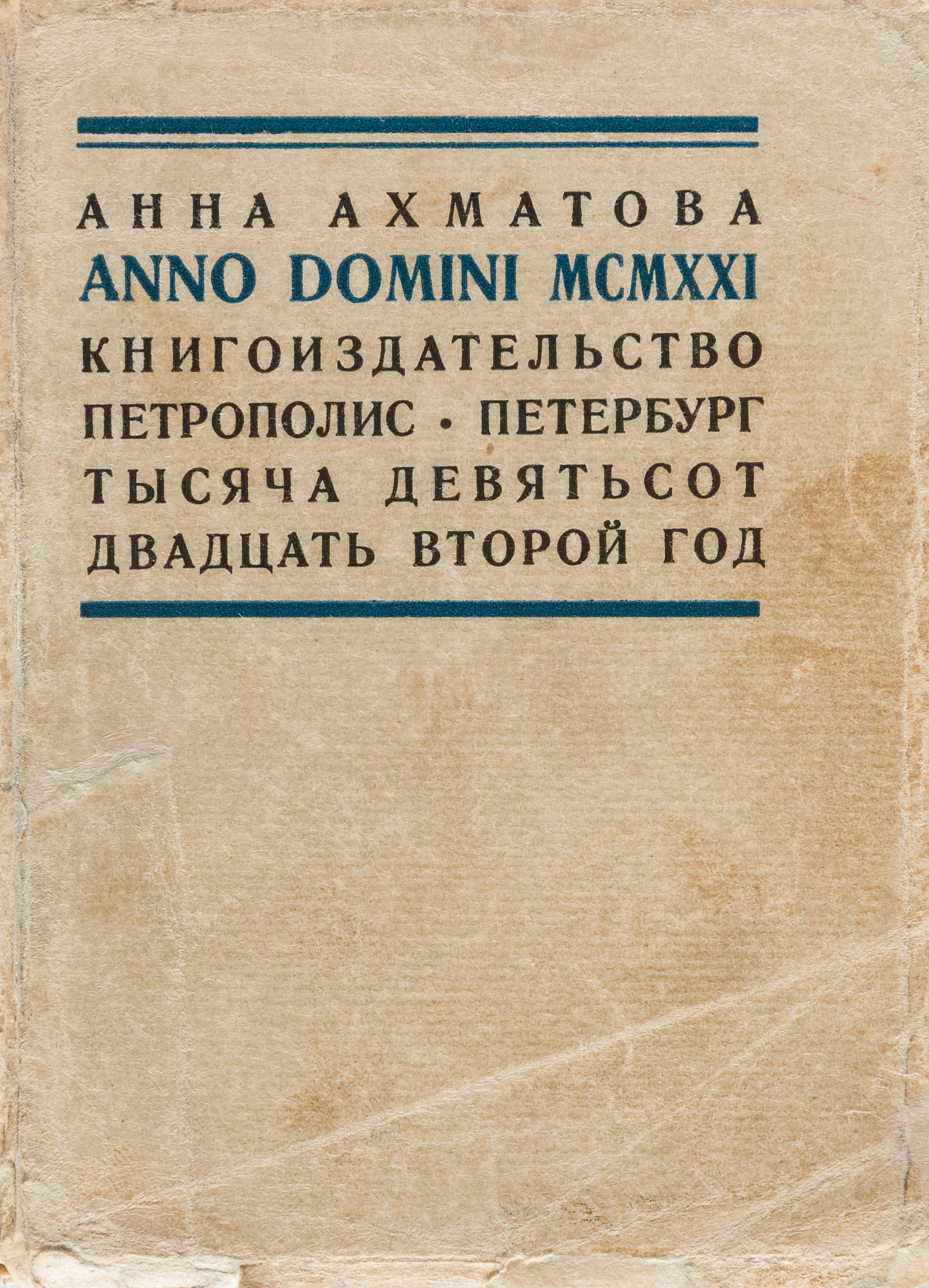


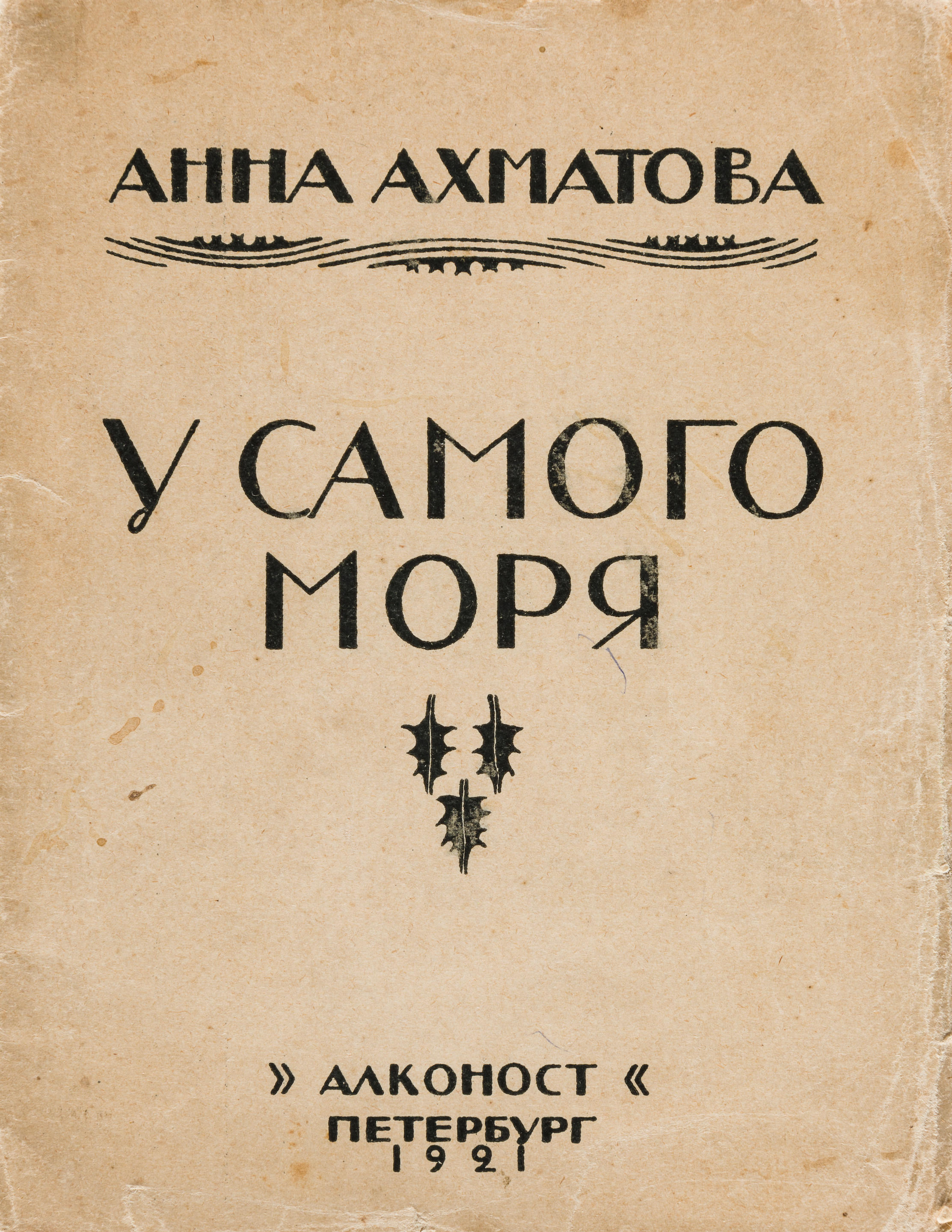
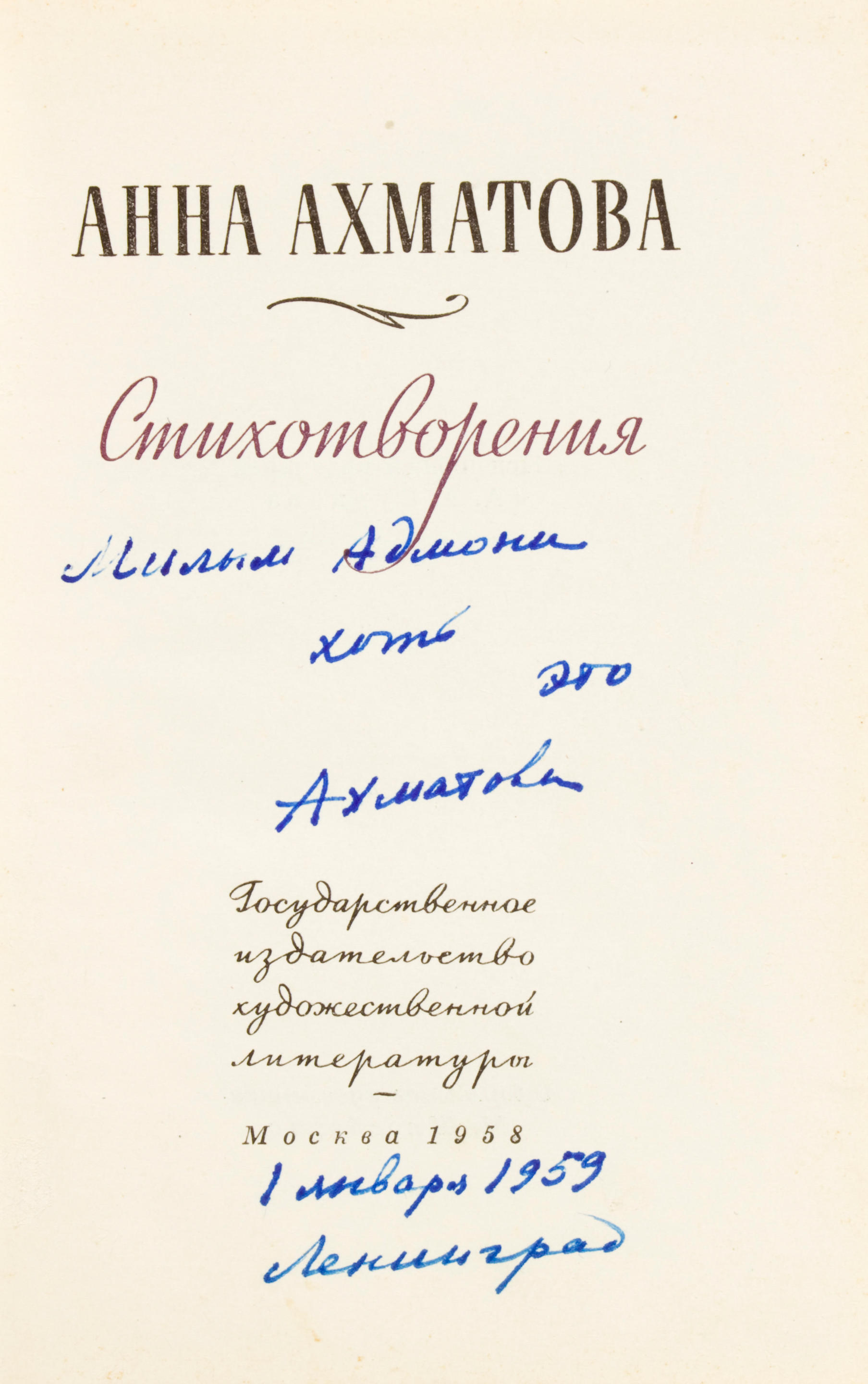

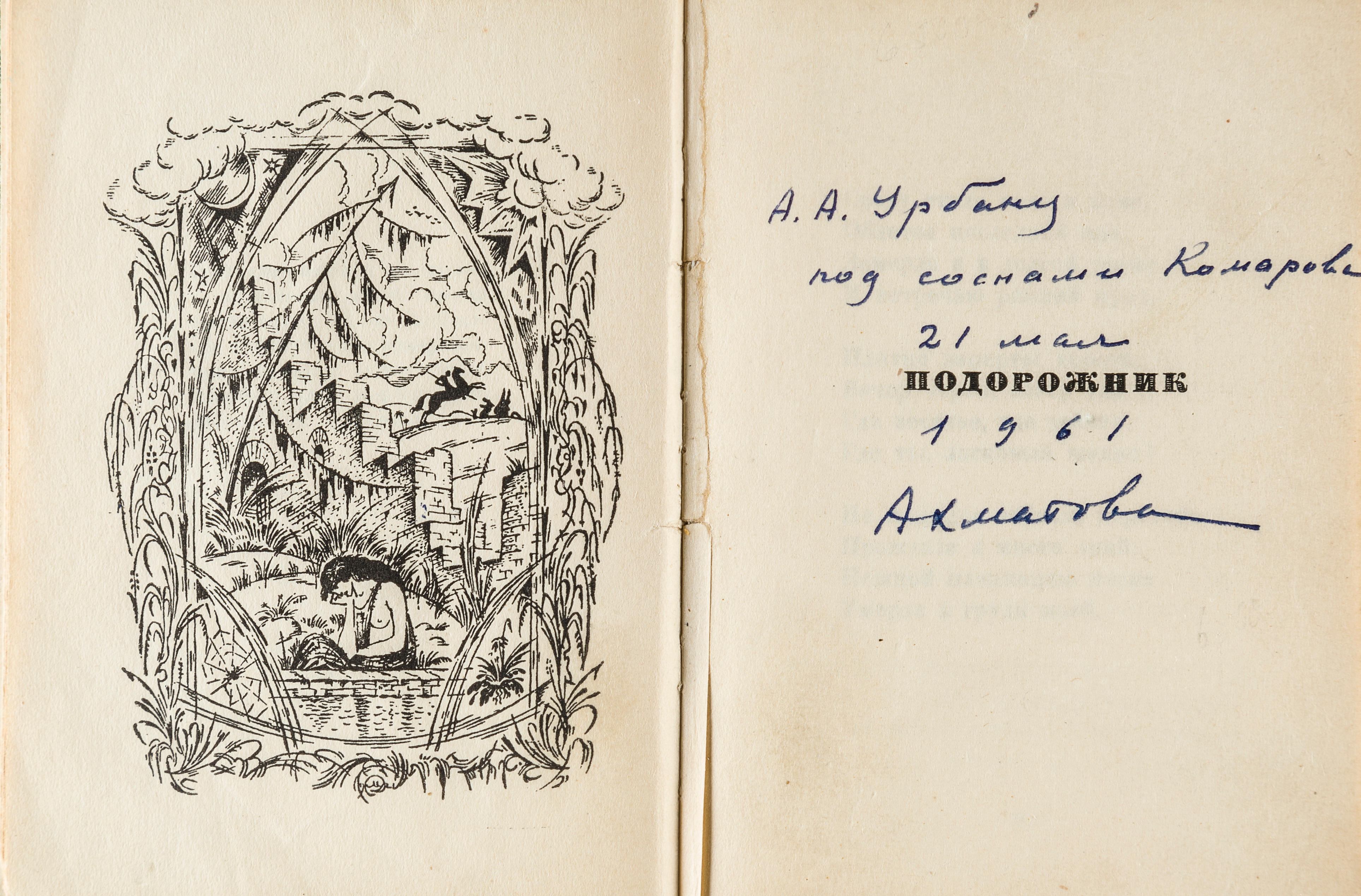
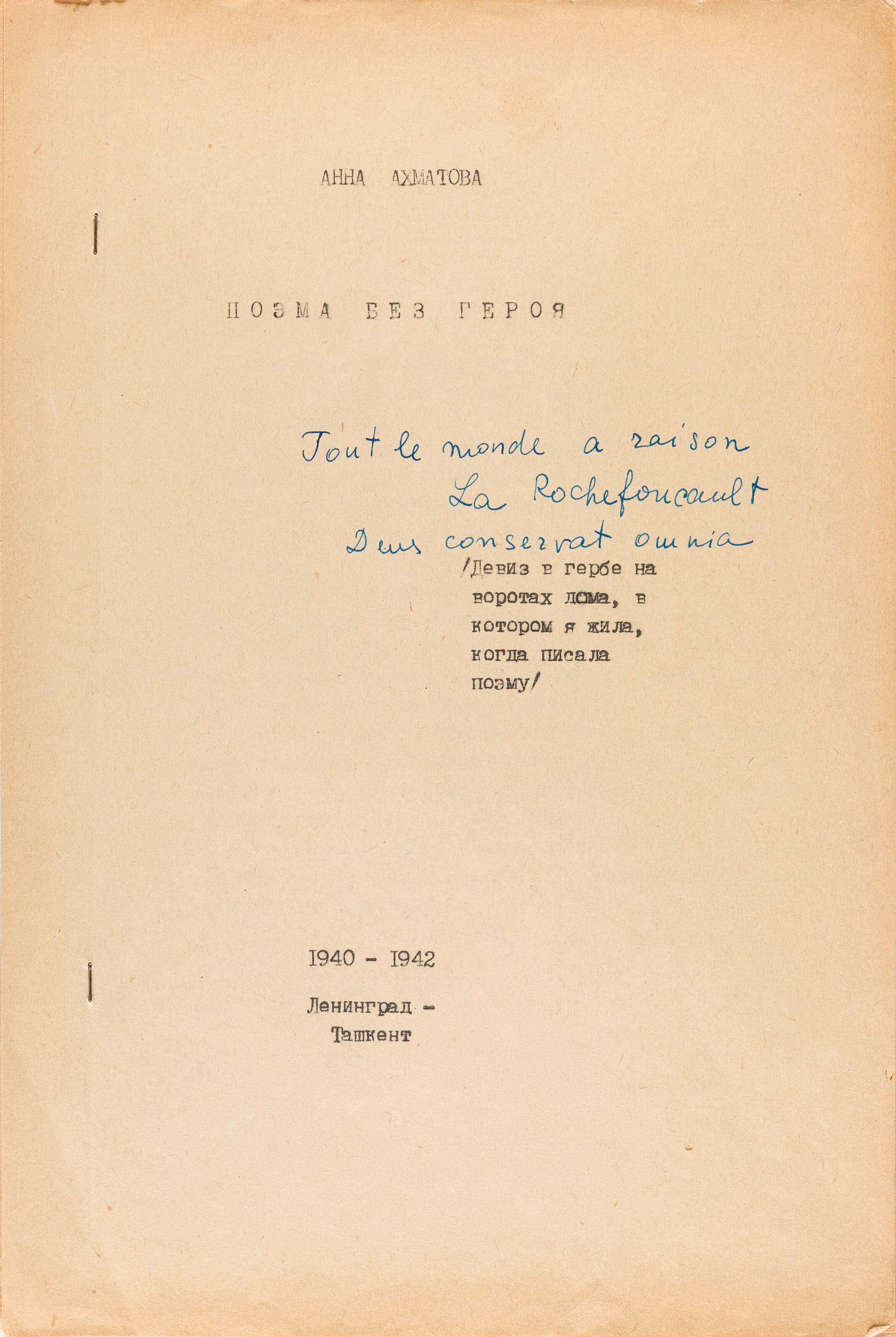


Try LotSearch and its premium features for 7 days - without any costs!
Be notified automatically about new items in upcoming auctions.
Create an alert